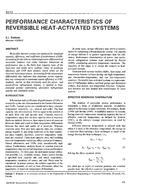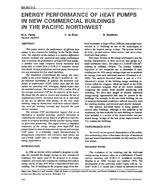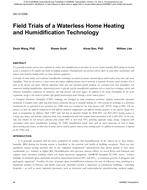Ozone is harmful to human health. It reacts with polyunsaturated fatty acids in fluids lining thelung with subsequent adverse effects in the airway epithelium (Levy et al., 2001). Numerousstudies have shown a link between exposures to ozone and decreased lung function, as well asasthma and premature mortality (Bell et al., 2005; Ito et al., 2005; Jerrett et al., 2009; Levy et al.,2005; McDonnell et al., 1999; Smith et al., 2009; USEPA, 2006a, and references providedtherein). Despite the fact that average outdoor ozone concentrations in the United Statesdecreased by 28% between 1980 and 2010, and by approximately a factor of two during thesame period in some air basins such as in the South Coast Air Quality Management District ofSouthern California (SCAQMD, 2012; USEPA, 2012b), nearly 1/3 of Americans still live andwork in counties with ozone concentrations that exceed the primary eight-hour average NationalAmbient Air Quality Standard (NAAQS) for ozone. The NAAQS concentration limit for ozoneis meant to protect public health, including the health of sensitive populations such as children,people with asthma, and the elderly.
This project seeks to complete an assessment of the state of knowledge related to the fate of ozone in buildings,including reaction products that stem from homogeneous and heterogeneous reactionsinvolving ozone in buildings.
Product Details
- Published:
- 2014
- Number of Pages:
- 260
- File Size:
- 2 files , 3 MB
- Product Code(s):
- D-RP-1491


